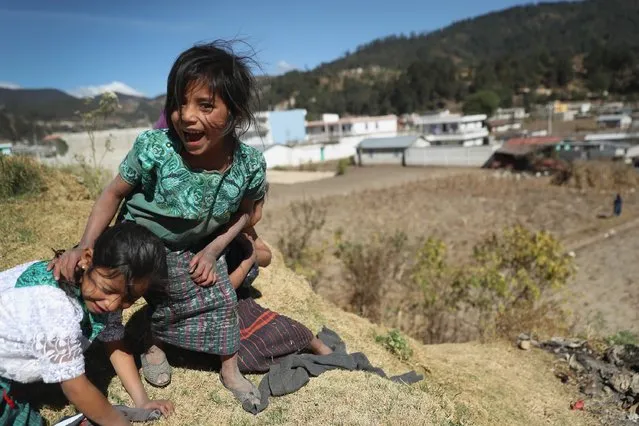
Young girls, who's father works as as immigrant laborer in the U.S., play in Cajola on February 11, 2017 in the western highlands of Guatemala. Women are especially effected by emigration from Guatemala, where some 70 percent of the men have left to work as undocumented immigrants in the United States, many of them leaving behind wives and children who only know their fathers online, if at all. Grupo Cajola, an NGO funded by American donations, is attempting to make the town's economy prosper locally to help reduce the need for emigration. With U.S. President Donald Trump's crackdown on illegal immigration, the spectre of increased deportations back to Guatemala and reduced remittances has made the need to educate children and adults and transform the local economy more urgent than ever. Remitances from undocumented Guatemalan laborers are the main source of income of Guatemala, and while increasing family wealth and driving a housing boom in towns like Cajola, they have also had the negative effect tearing the social fabric of local communites. Grupo Cajola has set up a weaving center, an egg farm, carpentry shop, internet cafe, library and education programs for pre-schoolers and their parents, while providing scholarships for more than 20 young residents to learn local trades. Textiles they produce are now exported for sale to the U.S. Grupo Cajola was founded in 2000 by Eduardo Jimenez, who lived as an undocumented immigrant for 10 years in the U.S. before returning to Guatemala. He coordinates locally with the group's American director Caryn Maxim, who organizes funding and product sales in New Jersey. (Photo by John Moore/Getty Images)
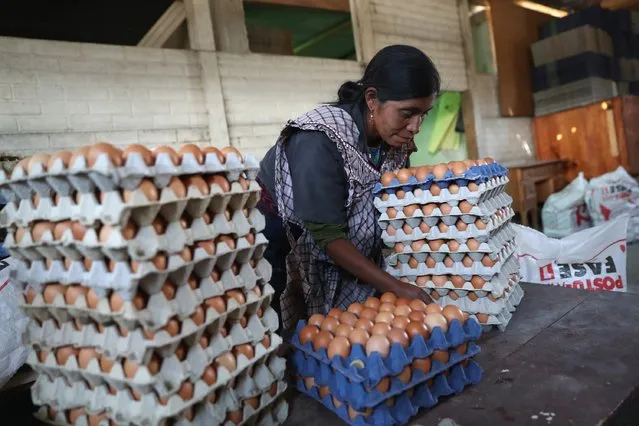
Cooperative farmer Luisa Huinel collects eggs on February 11, 2017 in the western highlands town of Cajola, Guatemala. Some 70 percent of the men in the town have left to work as undocumented immigrants in the United States, many of them leaving behind their families. (Photo by John Moore/Getty Images)
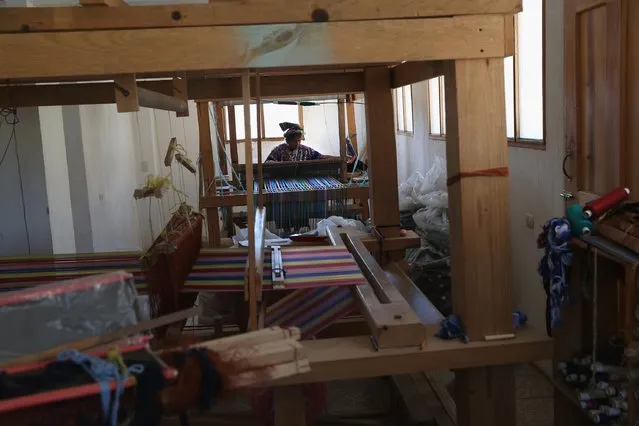
Indigenous Mayan weaver Delfina Perez, who's husband has worked in the U.S. as an immigrant for 20 years, works on a foot loom at the Grupo Cajola weaving cooperative on February 11, 2017 in Cajola, Guatemala. Women are especially effected by emigration from Guatemala, where some 70 percent of the men have left to work as undocumented immigrants in the United States, many of them leaving behind wives and children who only know their fathers online, if at all. (Photo by John Moore/Getty Images)
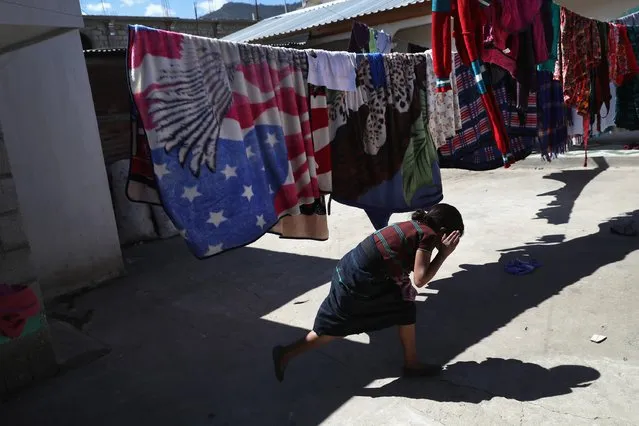
A girl, who's father works as as immigrant laborer in the U.S. plays outside her home built with money sent back from the United States to Cajola on February 11, 2017 in the western highlands of Guatemala. (Photo by John Moore/Getty Images)
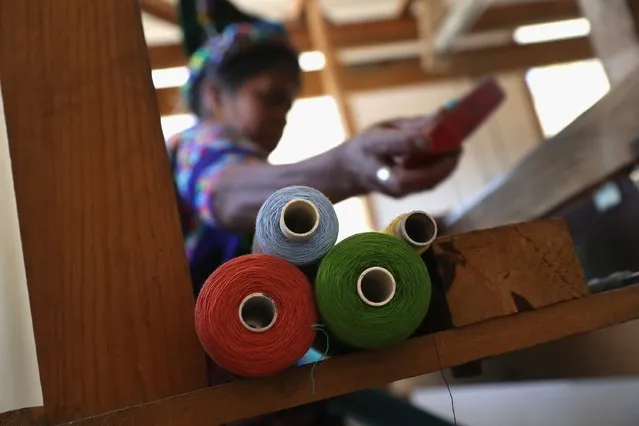
Indigenous Mayan weaver Delfina Perez, who's husband has worked in the U.S. as an immigrant for 20 years, works on a foot loom at the Grupo Cajola weaving cooperative on February 11, 2017 in Cajola, Guatemala. (Photo by John Moore/Getty Images)
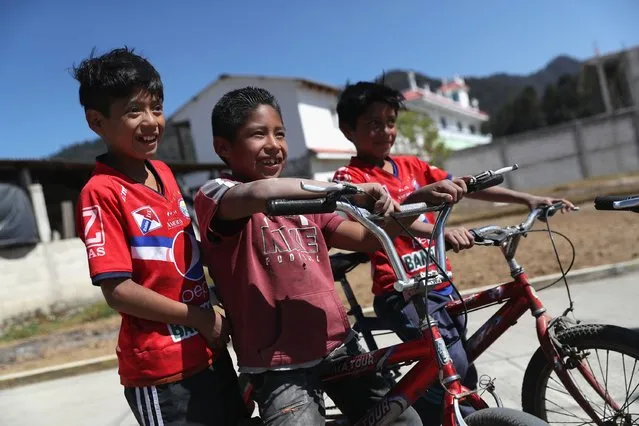
Indigenous Mayan weaver Delfina Perez, who's husband has worked in the U.S. as an immigrant for 20 years, works on a foot loom at the Grupo Cajola weaving cooperative on February 11, 2017 in Cajola, Guatemala. (Photo by John Moore/Getty Images)
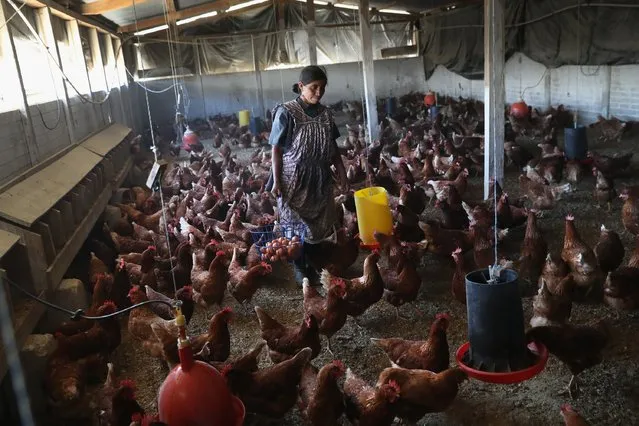
Cooperative farmer Luisa Huinel collects eggs on February 11, 2017 in the western highlands town of Cajola, Guatemala. (Photo by John Moore/Getty Images)
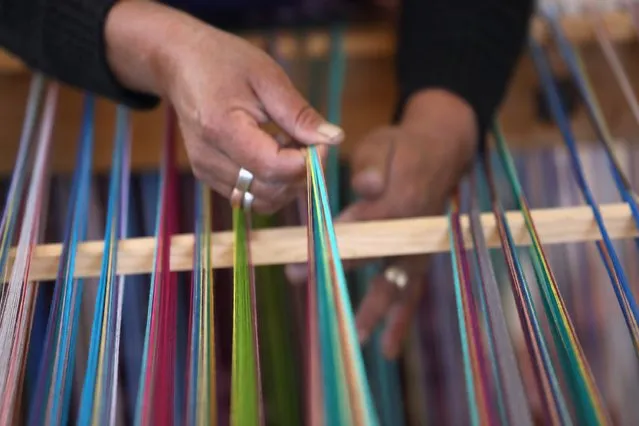
Indigenous Mayan weaver Delfina Perez, who's husband has worked in the U.S. as an immigrant for 20 years, alligns fabric for a foot loom at the Grupo Cajola weaving cooperative on February 11, 2017 in Cajola, Guatemala. (Photo by John Moore/Getty Images)

Buyers and sellers crowd into a vegetable market on February 11, 2017 in Almolonga, Guatemala. The Mayan town in the western highlands district of Quetzaltenango has surged in prosperity in recent years with high-productivity vegetable farming, exporting much of its excess crops to neighborning El Salvador. Almolonga has been called the “Vegetable Basket of the Americas”. Many locals attribute the town's change in fortunes to the rapid growth of the Evangelical Christian faith in the area, while others credit the increased use of pesticide farming. Regardless, the strong local economy will be key maintaining the town's prosperity if the Trump Administration follows through on curtailing remittance money sent back from undocumented immigrants in the U.S. to their families in Guatemala. (Photo by John Moore/Getty Images)
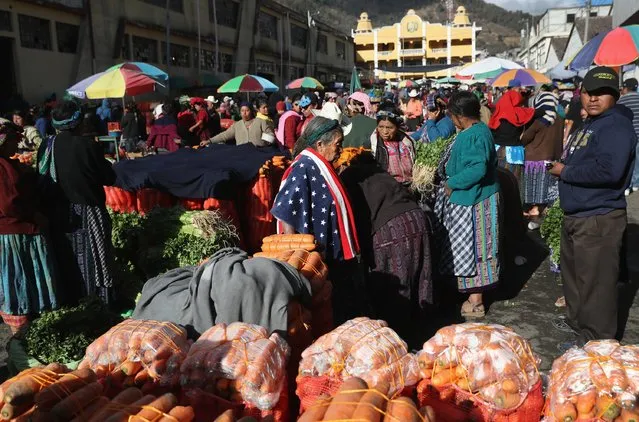
Maria Isabel Luna, 75, wears an American towel for warmth over her traditional Mayan dress while working at a vegetable market on February 11, 2017 in Almolonga, Guatemala. She said that two of her family members work as immigrant laborers in Los Angeles. The Mayan town in the western highlands district of Quetzaltenango has surged in prosperity in recent years with high-productivity vegetable farming, exporting much of its excess crops to neighborning El Salvador. (Photo by John Moore/Getty Images)

A porter carries a load of onions through a vegetable market on February 11, 2017 in Almolonga, Guatemala. (Photo by John Moore/Getty Images)
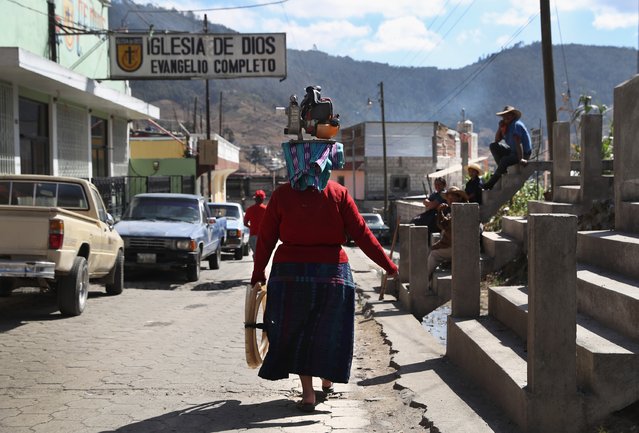
A woman carries a water pump to work on February 11, 2017 in Almolonga, Guatemala. (Photo by John Moore/Getty Images)
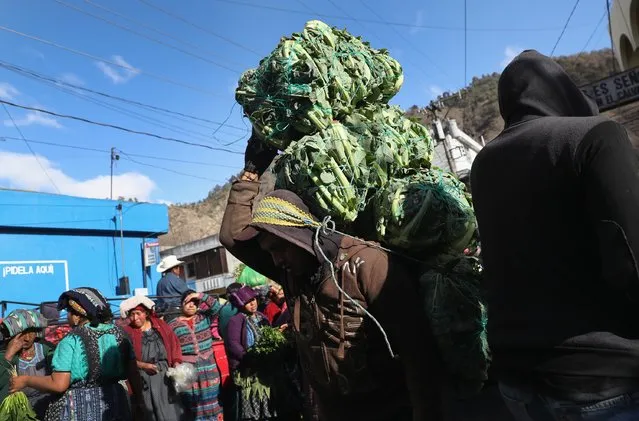
A porter carries a load through a vegetable market on February 11, 2017 in Almolonga, Guatemala. (Photo by John Moore/Getty Images)
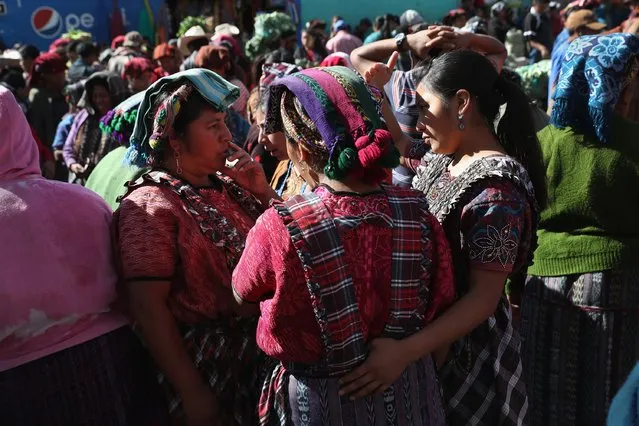
Vendors chat at a vegetable market on February 11, 2017 in Almolonga, Guatemala. (Photo by John Moore/Getty Images)
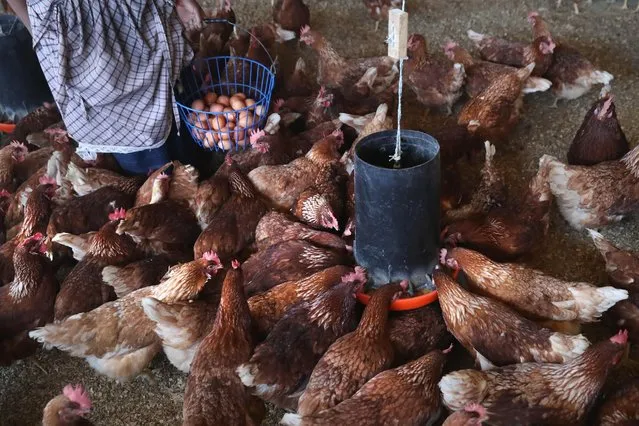
Cooperative farmer Luisa Huinel collects eggs on February 11, 2017 in the western highlands town of Cajola, Guatemala. (Photo by John Moore/Getty Images)
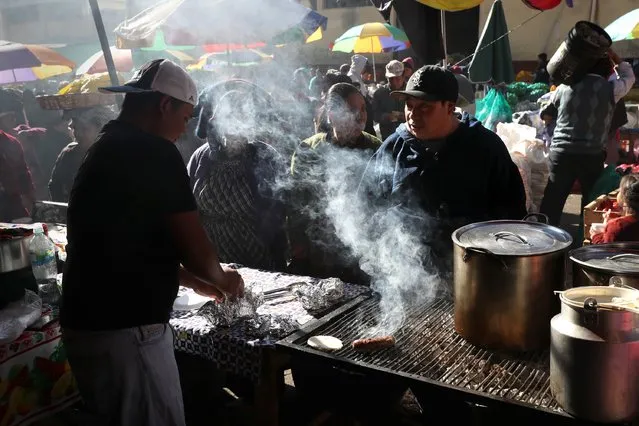
Patrons wait for breakfast at a vegetable market on February 11, 2017 in Almolonga, Guatemala. (Photo by John Moore/Getty Images)
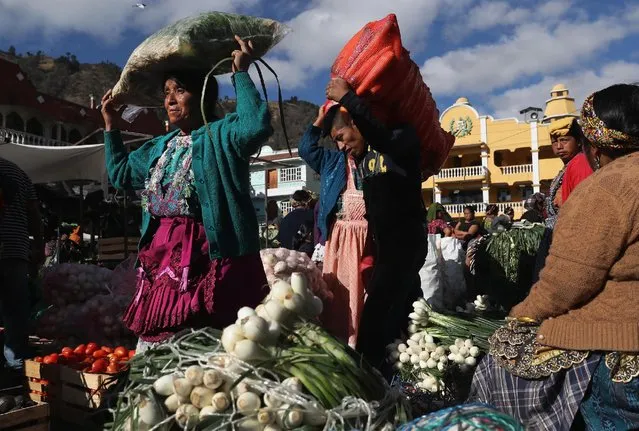
Women carry loads of onions through a vegetable market on February 11, 2017 in Almolonga, Guatemala. (Photo by John Moore/Getty Images)
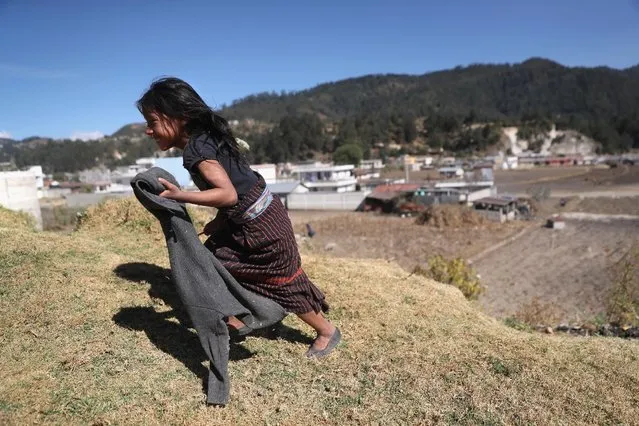
A girl, who's father works as as immigrant laborer in the U.S. plays in Cajola on February 11, 2017 in the western highlands of Guatemala. (Photo by John Moore/Getty Images)
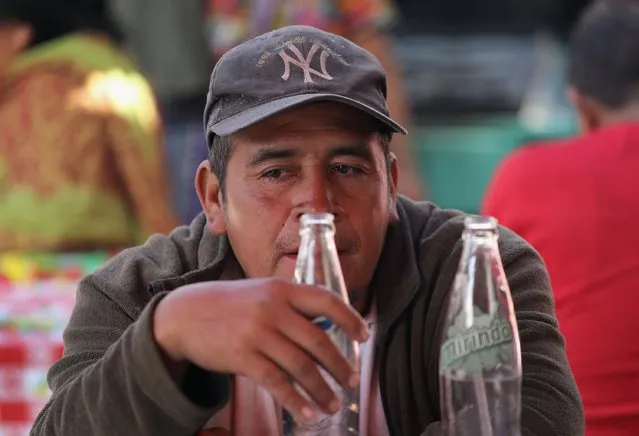
Former undocumented immigrant Pedro de leon Caballeros finishes a meal at an outdoor market February 11, 2017 in Almolonga, Guatemala. He said that he was deported from the U.S. to Guatemala after working for three years in Houston. (Photo by John Moore/Getty Images)
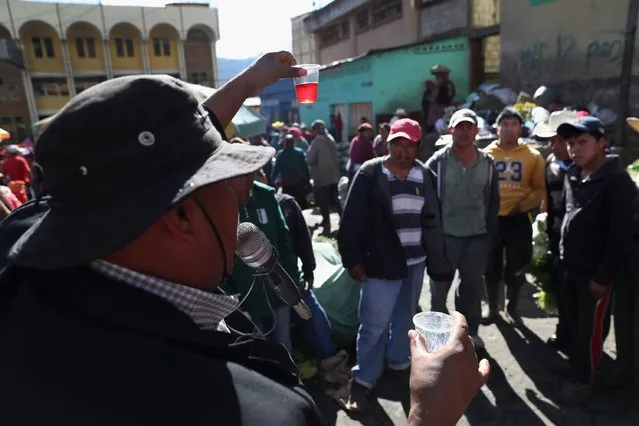
Herbal remedy salesman Wilmer Ruiz shows off his formula to people at a vegetable market on February 11, 2017 in Almolonga, Guatemala. Ruiz said he once tried to cross into the United States but was caught and deported and never tried again. He says his herbal remedy cures a wide range of ailments, including stomach pains, diabetes and hair loss. (Photo by John Moore/Getty Images)
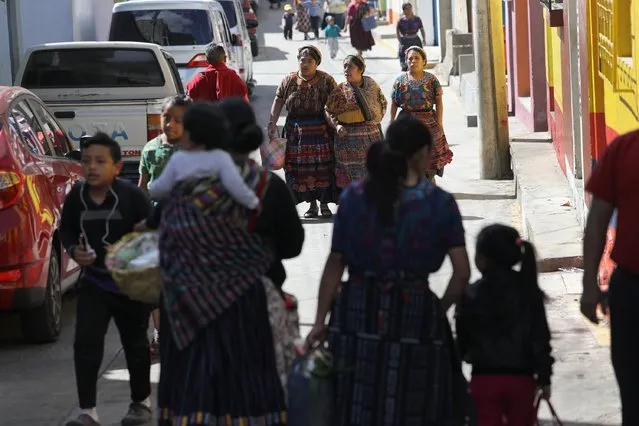
Women in traditional Mayan dress walk to a market on February 11, 2017 in Almolonga, Guatemala. (Photo by John Moore/Getty Images)
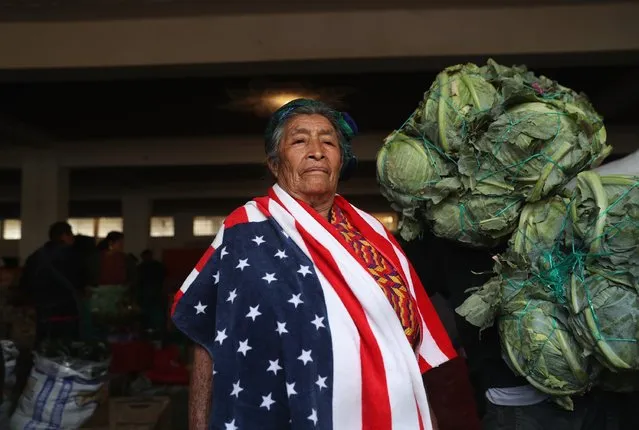
Maria Isabel Luna, 75, wears an American towel for warmth over her traditional Mayan dress while working at a vegetable market on February 11, 2017 in Almolonga, Guatemala. She said that two of her family members work as immigrant laborers in Los Angele. (Photo by John Moore/Getty Images)
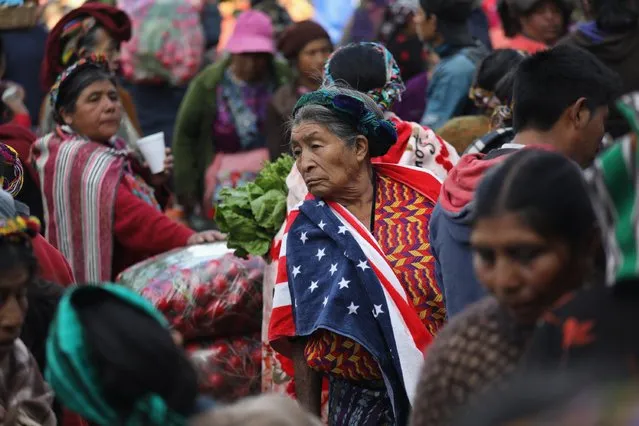
Maria Isabel Luna, 75, wears an American towel for warmth over her traditional Mayan dress while working at a vegetable market on February 11, 2017 in Almolonga, Guatemala. (Photo by John Moore/Getty Images)
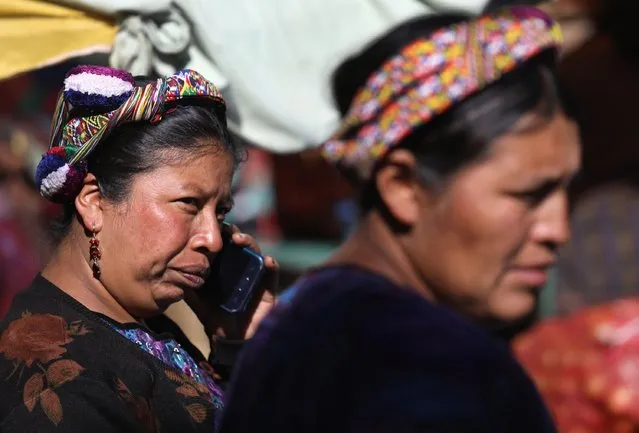
Vegetable vendors wait for clients at a market on February 11, 2017 in Almolonga, Guatemala. (Photo by John Moore/Getty Images)
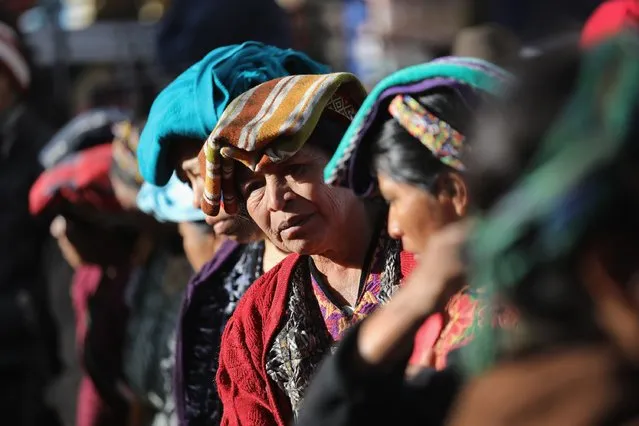
Women wait for shoppers at a vegetable market on February 11, 2017 in Almolonga, Guatemala. (Photo by John Moore/Getty Images)
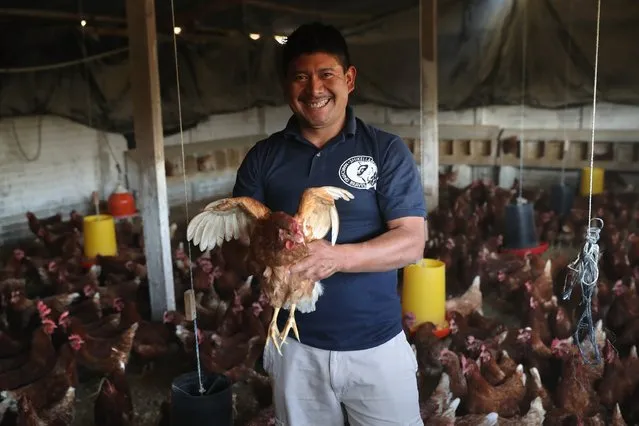
Eduardo Jimenez, a former undocumented immigrant and founder of the NGO Grupo Cajola stands in an egg farm cooperative on February 11, 2017 in Cajola, in the western highlands of Guatemala. Some 70 percent of the men in the town have left to work as undocumented immigrants in the United States, many of them leaving behind their families. (Photo by John Moore/Getty Images)
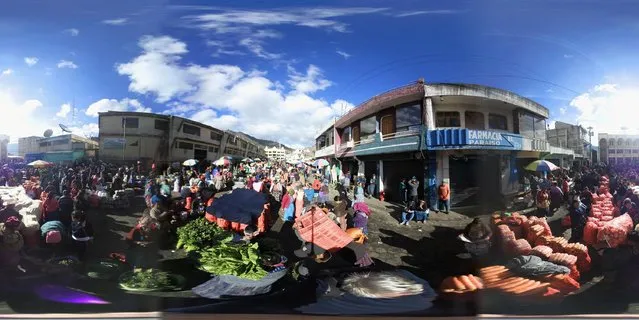
Buyers and sellers crowd into a vegetable market on February 11, 2017 in Almolonga, Guatemala. (Photo by John Moore/Getty Images)
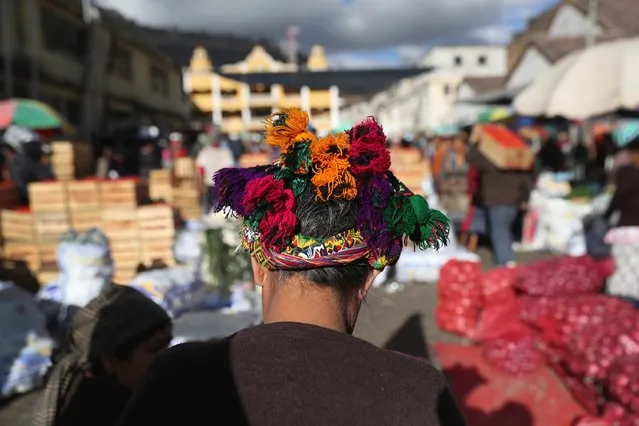
A woman, wearing traditional Mayan dress, shops at a vegetable market on February 11, 2017 in Almolonga, Guatemala. (Photo by John Moore/Getty Images)
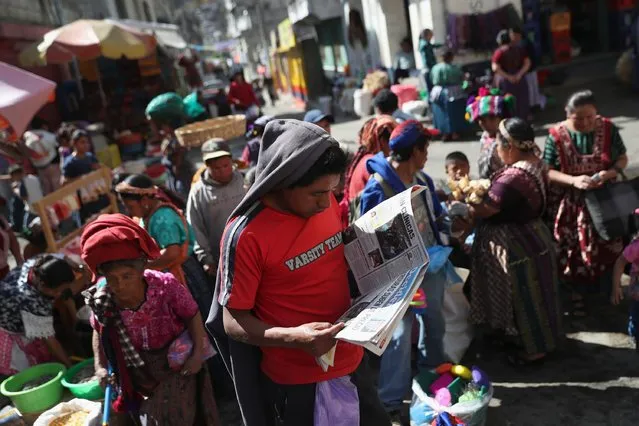
A vendor reads the newspaper at a vegetable market on February 11, 2017 in Almolonga, Guatemala. (Photo by John Moore/Getty Images)
25 Feb 2017 00:00:00,
post received
0 comments
